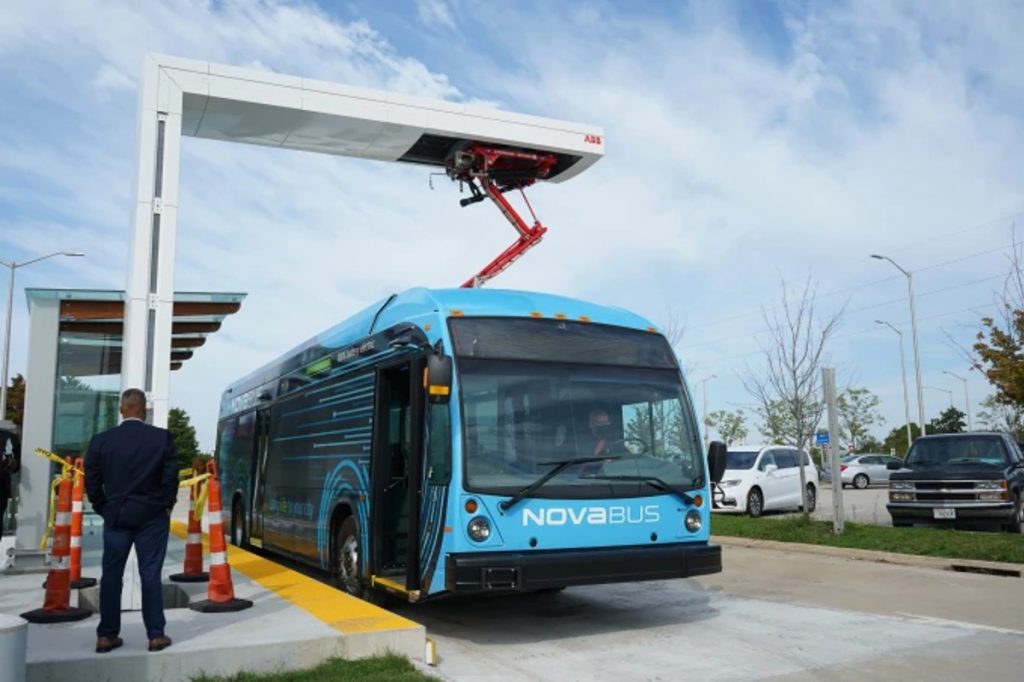[ad_1]

Saskatchewan’s capital city is moving forward with plans to electrify its Regina Transit fleet, signing a five-year contract with Nova Bus to acquire 53 battery electric city buses.
A subsidiary of the Volvo Group based in Quebec, Nova Bus manufactures long-range electric bus options with absolutely massive battery packs — up to 564 kWh on its biggest models, with the option of DC fast-charging or charging through overhead wires.
The first installment of its larger order will see seven of its LFSe+ 40-foot, long-range buses delivered to the City of Regina early in 2025 at a cost of $10.8 million (Canadian). The city will follow that with 13 more buses later in 2025 at a cost of $22.4 million, with an additional $21.2 million set to be spent on facility upgrades and infrastructure to support the electric buses.
“These will be the first battery-electric buses in Regina Transit’s fleet,” said Brad Bells, director of Transit and Fleet with the City of Regina, in a press statement. “The addition of these electric buses will support the City of Regina’s goal of becoming a 100 per cent renewable city by 2050.”
Nova Bus overhead EV charging

“The overall cost in 2024 and 2025 is $53.7 million. However, the federal government is providing Regina Transit with $26.85M (50 per cent of our overall cost) under the Zero Emission Transit Fund (ZETF), which brings our cost down to $26.85 million for both years,” a spokesperson for the City of Regina told Electric Autonomy. “The remaining 33 electric buses will be purchased after 2025 based on the City’s annual budget and fleet requirements.”
The City of Regina is a longstanding Nova Bus customer, and has helped advance the company’s decarbonization efforts by incorporating some the manufacturer’s hybrid-electric city buses into its transit fleet last year.
Electrek’s Take
Every city should prioritize the adoption of electric buses over diesel due to the significant public health benefits and environmental advantages associated with electric transit. This isn’t just my take — studies conducted by organizations like the American Lung Association have consistently demonstrated that diesel exhaust emissions contribute to air pollution, exacerbating respiratory illnesses and posing serious health risks to urban populations, particularly children and the elderly. This isn’t a left-wing conspiracy. Doctors want you in EVs. By transitioning to electric buses, cities can improve air quality, protect public health, and mitigate the impacts of climate change, ultimately creating cleaner and more livable urban environments for residents now and in the future.
FTC: We use income earning auto affiliate links. More.
[ad_2]
Source link
